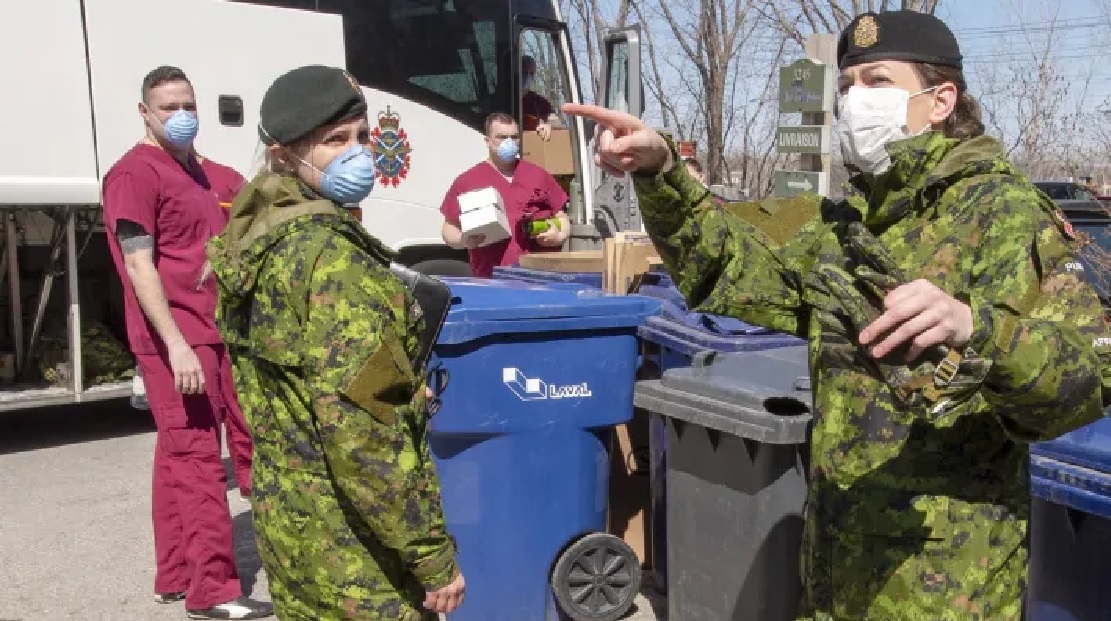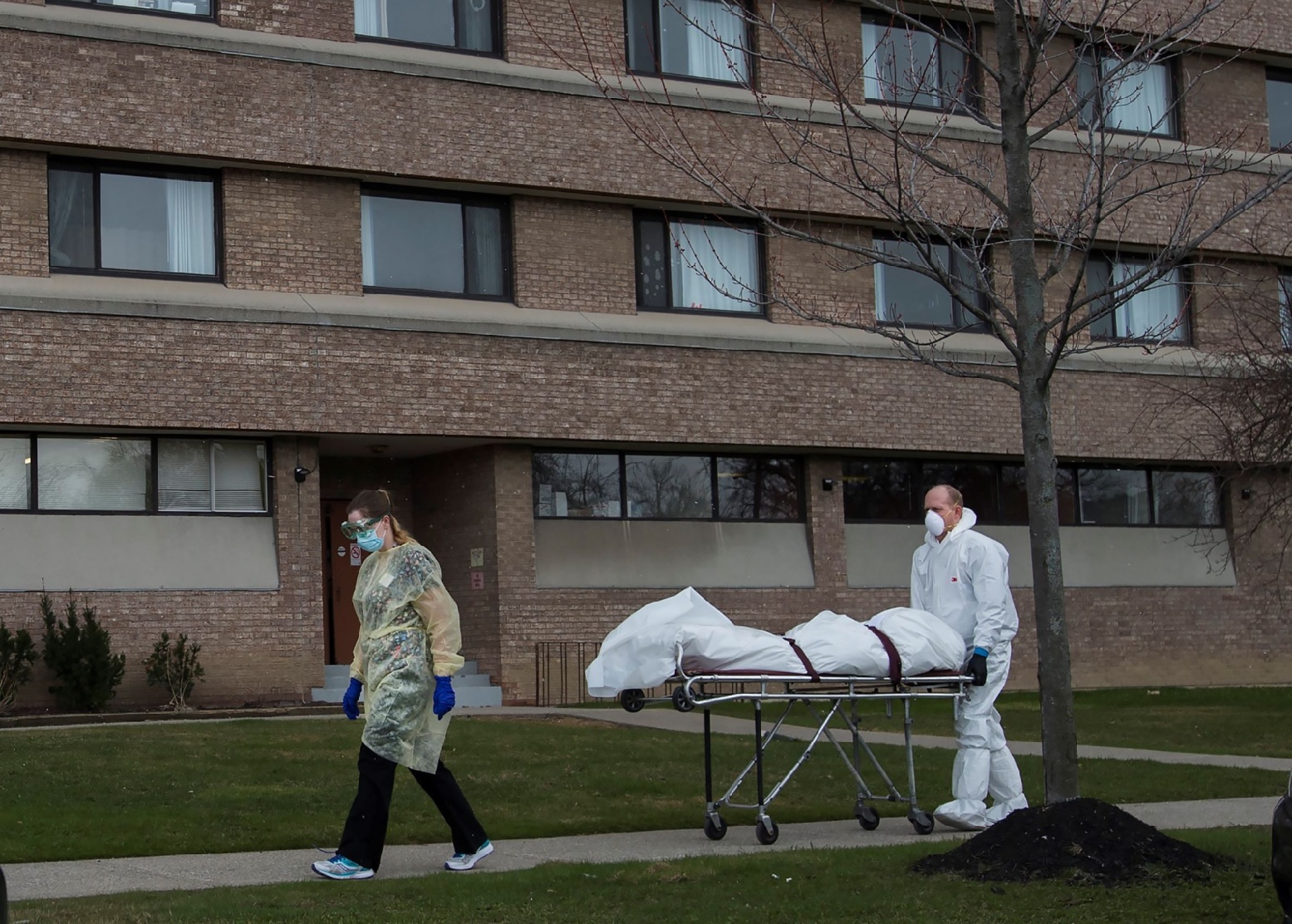
Responding to urgent requests, the military sent over 1,500 personnel to help at several nursing homes in Ontario and Quebec, allegedly soon finding several deeply disturbing issues regarding care of the residents. (Ryan Remiorz- CP)
Shortly after arrival, however the military issued two reports on conditions and situations encountered by the personnel. The deeply disturbing reports noted a series of sanitary lapses, physical and verbal abuses of residents, lack of proper training by staff, and cases of negligence including rotting food, insect infestations, missed meals and medications.

April 14, 2020: A body is wheeled from the Eatonville Care Centre, in Ontario where multiple deaths from COVID-19 have occurred, Military reports on conditions in some of the Ontario and Quebec facilities were extremely disturbing (The Canadian Press / Nathan Denette)
There are now a number of civil lawsuits proposed against the owners of the long-term care facilities. Lawyers say testimony by soldiers at the homes could be critical in eventual legal cases against the owners and management. This is especially so as they were firsthand witnesses while family members were kept out of the facilities due to the lockdown.
Stephen Birman of Toronto law firm Thomson Rogers, is one of the lawyers leading a lawsuit in Ontario is quoted by Lee Berthiaume of the Canadian Press saying the military came as an objective third party and, “they saw and identified a horrendous and shocking situation that may never have come to the forefront to the extent that it has if not for their involvement”.
None of the allegations against the facilities have been proven in court
The Department of National Defence (DND) noted that like any other Canadian citizen, military personnel can be called as witnesses in legal proceedings.
A 2017-18 Ontario provincial inquiry into care at these facilities raised several concerns about conditions in long-term care homes while the Ontario Health Coalition has been reporting on conditions in the homes and asking for more unannounced and more thorough inspections of the facilities.


